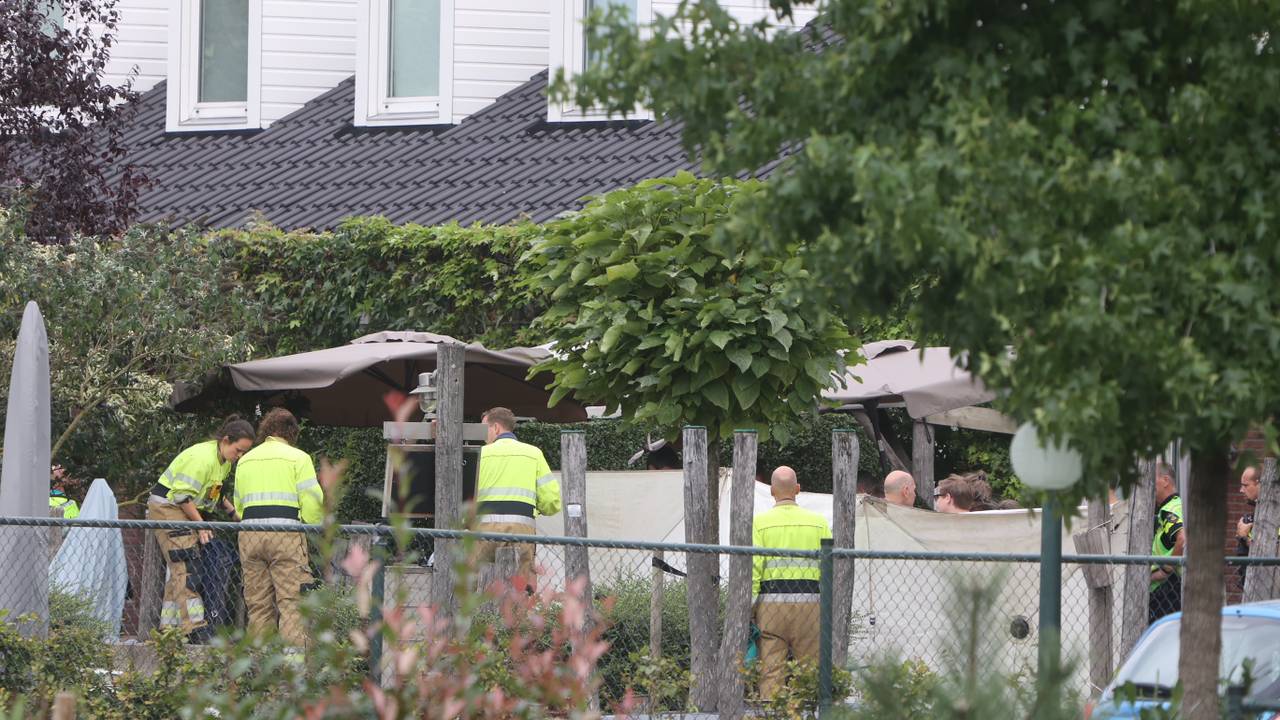French third row Abdelatif Benazzi (C) tries to infiltrate between two Englishmen, including Steve Ojomoh (D), on June 22, 1995 in Pretoria, during their match counting for third place in the Rugby World Cup. France beat England 19-9. France’s flanker Abdelatif Benazzi tries to break through the tackles of England’s Steve Ojomoh (R) and an unidentified teammate in their Rugby World Cup third-place match at Loftus in Pretoria 22 June 1995. France won 19-9. AFP/WALTER DHLADHLA (WALTER DHLADHLA)
A non-awarded try entered into legend, a questionable refereeing, the joy of Mandela… the former third row Abdelatif Benazzi (55 years old, 78 selections) returns for the AFP on the epic of the Blues of 1995, stopped in the half (19-15) by South Africa, during a World Cup where “politics took precedence” over rugby.
QUESTION: Can we say that after the victorious tours to South Africa (1993) and New Zealand (1994), you enter the competition in the position of favorite?
ANSWER: “Indeed. Of the three World Cups that I played in (1991, 1995, 1999, Editor’s note), it was the most favorable period to win it. This team held the record for victories against teams from Southern Hemisphere at home. We also had a coach (Pierre Berbizier) who was a pioneer in terms of what is done today, who was ahead of his time.”
Q: How is your arrival on site?
A: “We arrived a week before everyone else at a training camp far from Pretoria and we had prison inmates as sparring partners. We had a structure that had been practically the same for three or four years, which was rare at that time. After apartheid, the South Africans wanted to show the world that even if they were not a good team a year before, they prepared physically like monsters. The All Blacks, who had suffered some humiliations, prepared properly. We had to prepare very hard to be at the top in the quarter-finals, in the semi-finals, which explains why we rose to a crescendo, without fear, even if This match against Scotland (22-19) really scared us. We scored a try by Émile Ntamack in the 84th minute.”
Q: There is no photo in the quarterfinals against Ireland (36-12) just before meeting the Springboks in the semi-final in difficult conditions…
Read more
A: “It disturbed us. We didn’t know if we were going to play. We couldn’t cancel the match to play it elsewhere, nothing was planned. We had to wait an hour and a half with this image that remains with me around a hundred women, none of whom were white, who swept the pitch to clear away the water and were whistled by the public. This long time made us a little foiled. In the first period, we were a little physically dominated even If we weren’t behind in the score. I especially remember the second half. We spent almost 35 minutes at their home, we could have scored three or four times with a repetition of scrums that we dominated. The referee didn’t arrive to whistle a penalty try.”
Q: How do you feel then?
A: “There is a kind of doubt that sets in with the referee who whistles very quickly, until this last action. I have done it again 20 times, 200 times, I pass behind the line with the speed that was mine with the slippery ground. Despite the presence of Philippe Saint-André who is on the ground right in front of me and on whom I stumble, I fall and I flatten but the referee had this very spontaneous reaction and ordered a melee at 5 meters. It’s a feeling of injustice that predominates. I think politics took precedence. This was confirmed during this official dinner after the final where he was thanked with a gold watch.”
Q: What was the mood like after the match?
A: “There was great frustration from the whole team and I had to calm the locker room by saying that I had not scored so that we could stay focused and play for third place to have this bronze medal, and above all breaking this spiral against the English who had been beating us for five years. It was useful to us since we beat them (19-9). We broke this myth of incomprehension with their famous +Good game !+ by spending a huge third half with them.”
Q: How do you, a native of Oujda (Morocco), view the final victory of the South Africans?
A: “Once again, there was something else happening. As a believer, I saw that it was a question of destiny for this country and so much the better. See the oh-so-important presence of Mandela who was a prisoner for twenty-seven years with this N.6 jersey symbolizes everything. Seeing his joy in handing over the World Cup, seeing the enthusiasm of the public, these whites and these blacks kissing in the stands, these rainbow colors -rainbows that float, it was inconceivable two years ago. Me, who was born in Africa, who have always fought the problems of discrimination, obscurantism, it calmed me down a lot. I said to myself that rugby, that’s also what it’s for, it’s something other than losing or winning, it solves the social and political problems in certain countries.”
Comments collected by Raphaël PERRY
rap/lrb/mca/cpb/
#Mondial1995 #Politics #precedence #judge #Abdelatif #Benazzi


